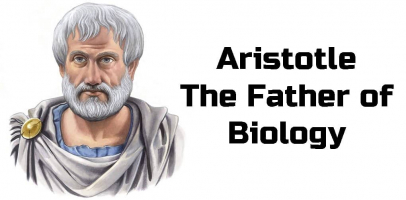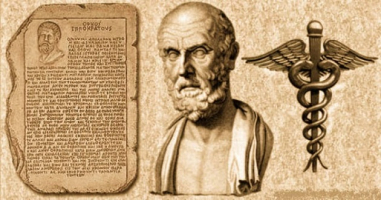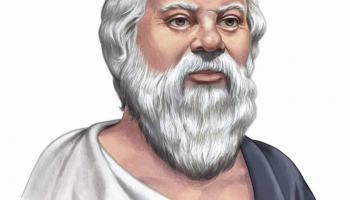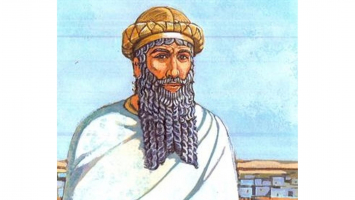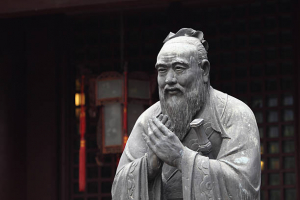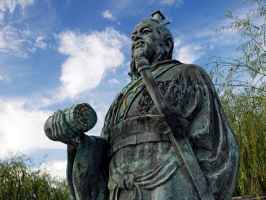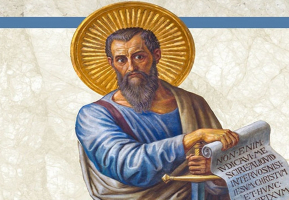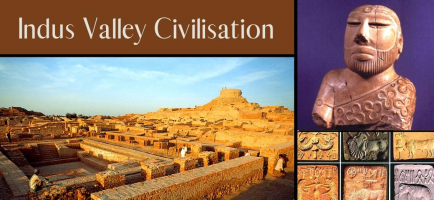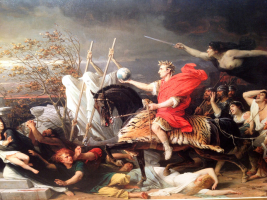Top 12 Contributions of Plato
In the fifth century BCE, Plato is said to have been born in Athens, Greece, in the year 428. Plato was raised in a wealthy and prosperous Athenian household ... read more...and initially wanted to be a politician. However, as he got older, he began to dislike Athenian autocrats and was drawn to Socratic philosophy. He eventually followed Socrates as a result of this. Learn more about the 12 important contributions of Plato to philosophy to better understand his influence.
-
After Socrates was executed in 399 BC, Plato departed from Athens. He is thought to have traveled much at this time and came back 12 years later, in 387 BC. Plato's school may have been founded at an unknown date, although evidence indicates that it may have been in the middle of the fourth century BC.
Outside the ancient Athens city walls stood a school called the Akademia or the Academy. Students might learn a wide range of disciplines from different professors there. Most academics agree that The Academy was the first recognized university in Europe. The Academy provided a broad range of disciplines taught by professionals in their fields. Numerous intelligent people including Theaetetus, a mathematician, Eudoxus of Cnidus, and Aristotle, a philosopher, were all drawn to the Academy, which was considered to be the top university in Europe.
Numerous intelligent people were drawn to it including Aristotle, Theaetetus, and Eudoxus of Cnidus, who was a mathematician (philosopher). Plato controlled the Academy until he died in 347 BCE because he felt that such organizations would promote social advancement and more reliable governmental systems. After Sulla, the Roman ruler besieged Athens, the Academy was destroyed in 86 BCE. A restored Neoplatonic Academy was founded in 410 AD, over 500 years later, and served as a hub for Neoplatonism and mysticism until Justinian I, the Christian emperor, ordered its closure in 529 because it was a pagan institution.
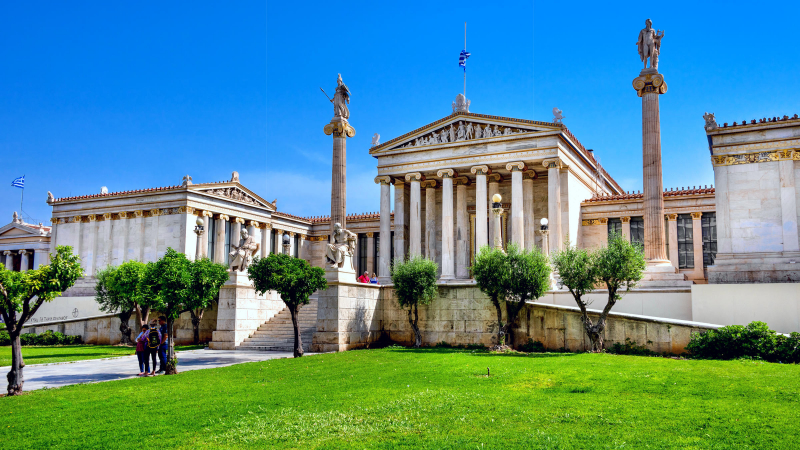
pinterest.com 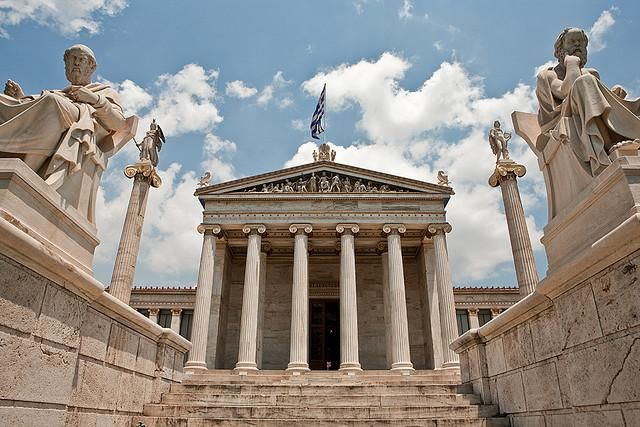
pinterest.com -
Socrates is regarded as one of the pioneers of Western philosophical thinking and is frequently referred to be history's first moral philosopher. Although Socrates was a well-known philosopher in his day, he left no lessons behind. Thus, Socrates is known through the works of his contemporaries, such as Antisthenes and Aristippus, as well as his pupils, including Xenophon and Plato. Most of the time, Plato used dialogue to have characters debate a topic while examining and dissecting it from multiple angles.
Early writings by Plato, referred to as "dialogues," appear to be directly derived from Socrates. The main character of these texts is primarily Plato's teacher Socrates, and the topics are frequently based on Socrates' lectures. The Apology, in which Socrates defends his convictions against accusations made by the Athenian court, is the most well-known of the Socratic Dialogues. Plato's "dialogues" are an essential resource for understanding Socrates, even though other sources present him in a different light.
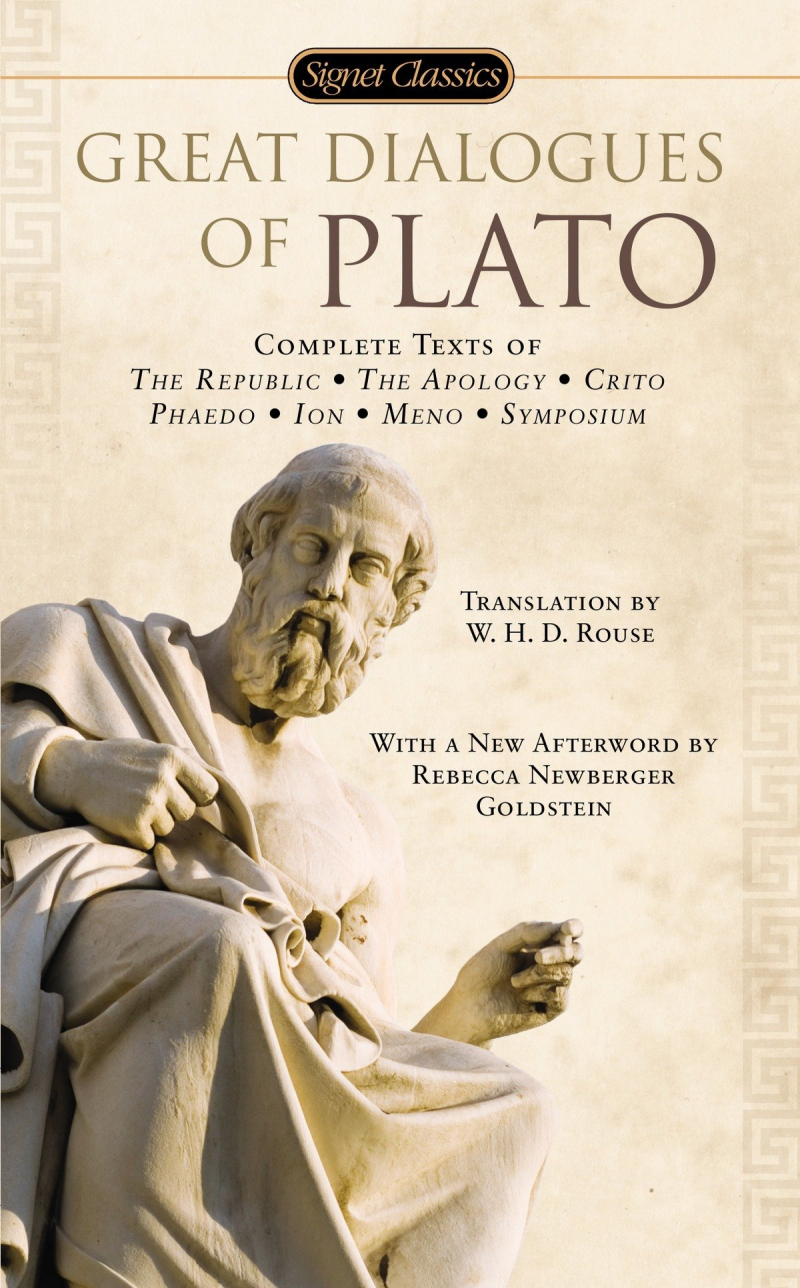
Dialogues of Plato - www.amazon.com 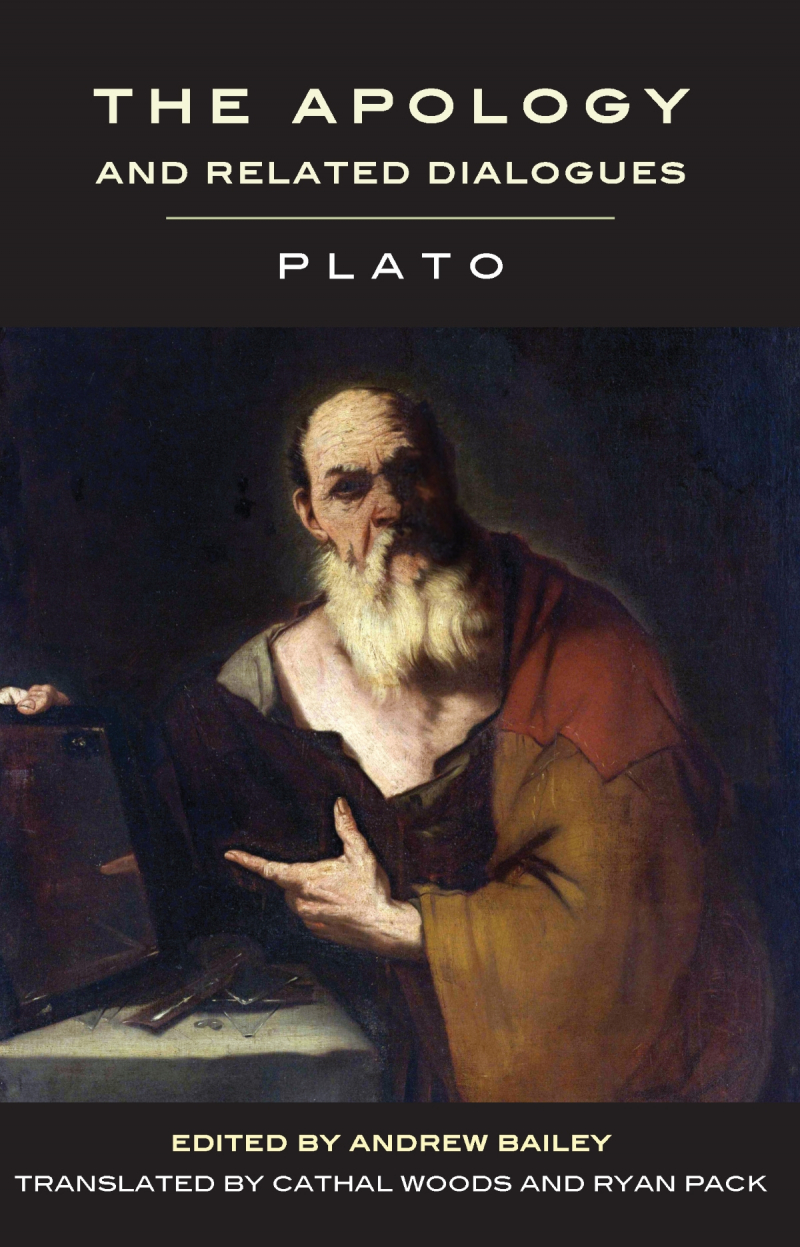
The Apology - www.amazon.com -
Plato's writings are often divided by scholars into three periods. Early periods such as Works like Apology of Socrates, Euthyphro, Hippias Major, Minor, and Ion are credited to him at this time. An important aspect of this period is the mythical Socrates that appears in the dialogues.
The Middle Period including The Republic, Symposium, and Phaedo, three of Plato's most well-known writings, were all written during this time. Plato has continued to delve into philosophical ideas like law, love, and the soul in his dialogues. In this period, Socrates continues to be a fictitious figure used to debate philosophical ideas, but he begins to fade into the background.
Late Period as Parmenides and Theaetetus are two of this period's most well-known philosophical essays masterpieces. During this time, Plato challenges the contradictions between religion and knowledge. The majority of Plato's writings take the form of conversations, many of which have no clear end. The best method to learn Plato's philosophy is to approach a subject from all angles and keep asking what happens. Even literary academics who are generally uninterested in philosophy have taken notice of these dramatic aspects of Plato's works, which are the reason they are still the subject of intense dispute today.
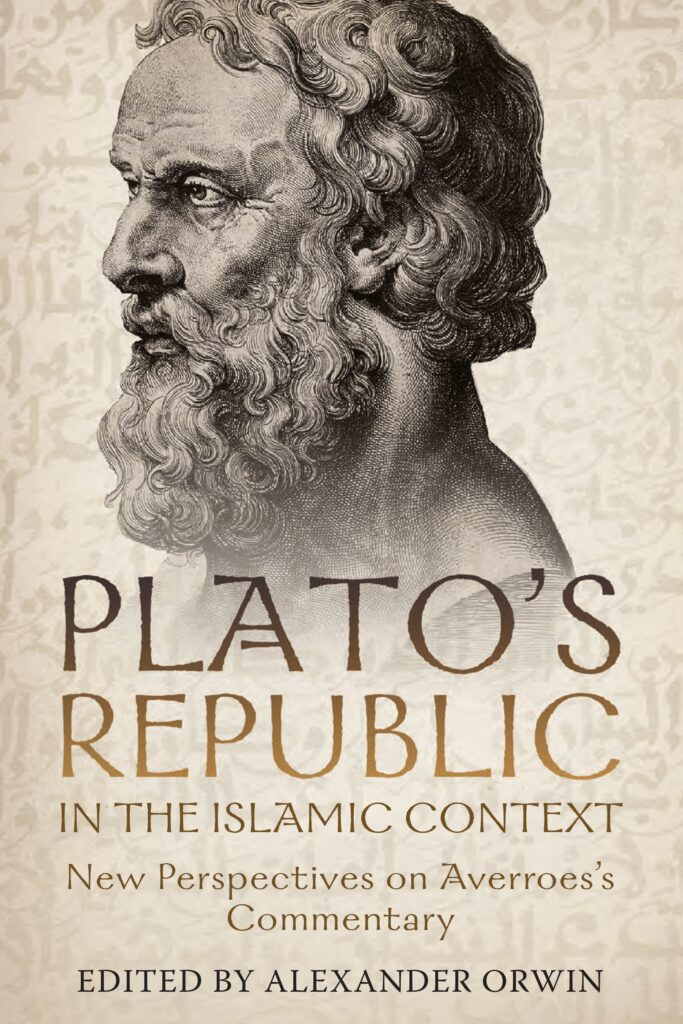
The Republic - www.amazon.com 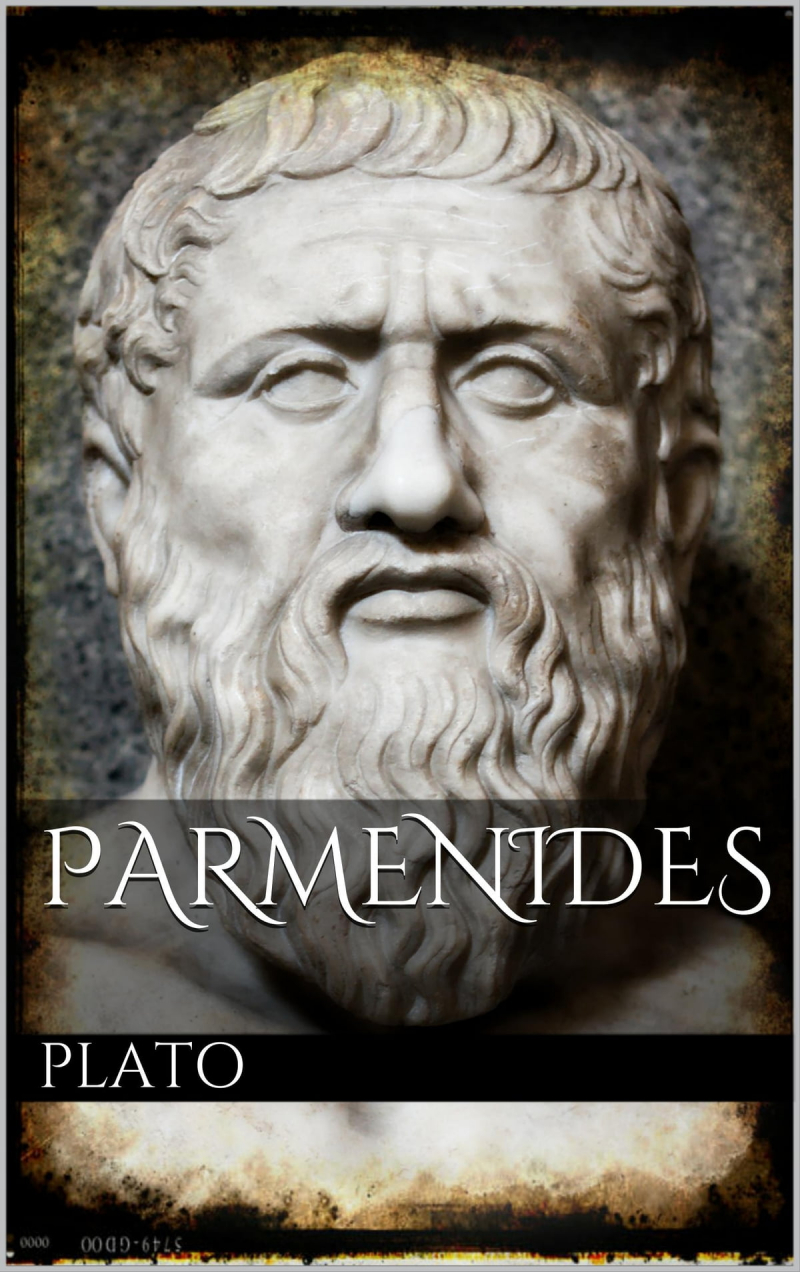
Parmenides - www.amazon.com -
The Allegory of the Cave is likely the most well-known single passage of Plato in the annals of western philosophy. In a discussion in the Republic, Socrates introduces his interlocutor, Glaucon, to a peculiar vision. There were cave dwellers there, unable to move their heads because of their shackles. They are also seeing shadows created on the wall.
In a nearby area where people were supporting objects with fire, their shadows were mirrored by a low wall. Additionally, they were generating noises that reverberated at the cave's entrance. As a result, the folks at the bottom began to hear imitation sounds and see shadow pictures. Then a true exit leading to the cave above, where the truth lay, appeared. Glaucon shouted that the sight was weird, to which Socrates responded that these captives were only viewing shadow images.
The inmates were identifying the things they saw and associated with them. However, the main issue is that what we are seeing is simply a copy of a copy of a copy and not a genuine thing. In essence, they are frequently separated from really recognizing the objects as they make their way from the cave's actual exit to the statue form in the center and then are eventually projected onto the inmates.
One of them is ultimately released after being made to stand up. He makes a full 180-degree spin and looks at the statues, moving one step closer to perceiving things that are more like reality. Moreover, he is momentarily confused by the brilliant light beyond the cave's pits as he pulls himself up a steep and difficult slope.
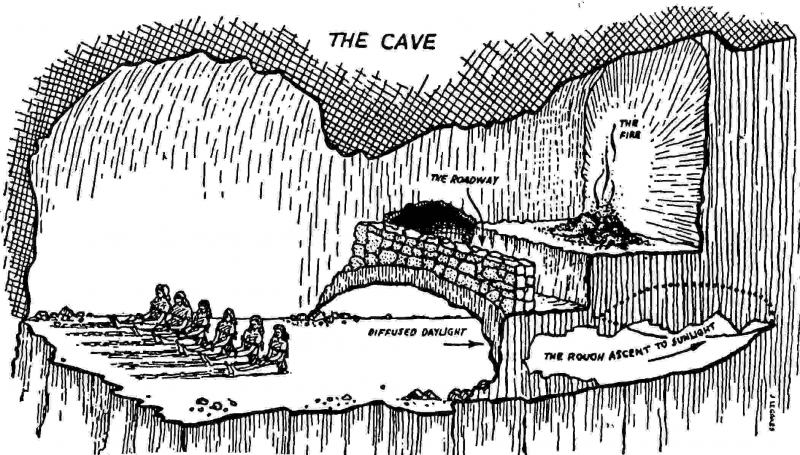
The Allegory of the Cave - pinterest.com Mark Lambert - youtube.com -
Plato saw a person's need as the primary driver of a relationship. He believed that individuals primarily act in their self-interests. They band together and support one another because it appears to be in their own best interests. To coordinate productive endeavors, Plato argued for the division of labor. He believed that each person had a unique set of inherent talents, making them each better suited to a certain profession than they may be to another. He thought that for many jobs to be completed at once, certain individuals had to be available.
According to him, people may be categorized into three primary groups. First including, farmers, tradespeople, and artisans were motivated to make goods. These folks were supposed to represent the spirit's "hunger" aspect. The second was those who played the role of guardians and cared about defense and the "soul" component of the spirit. Military officers were among those who were praised for their bravery, dependability, and audacity. And the last such as rulers or academics who were astute, astute, self-controlled, and desired intellect and equity were those who were concerned with the "reason" portion of the spirit. This group was regarded as the smallest of the three. According to Plato, the only way to end societal division and achieve a fair society is by specialization in one of these responsibilities.
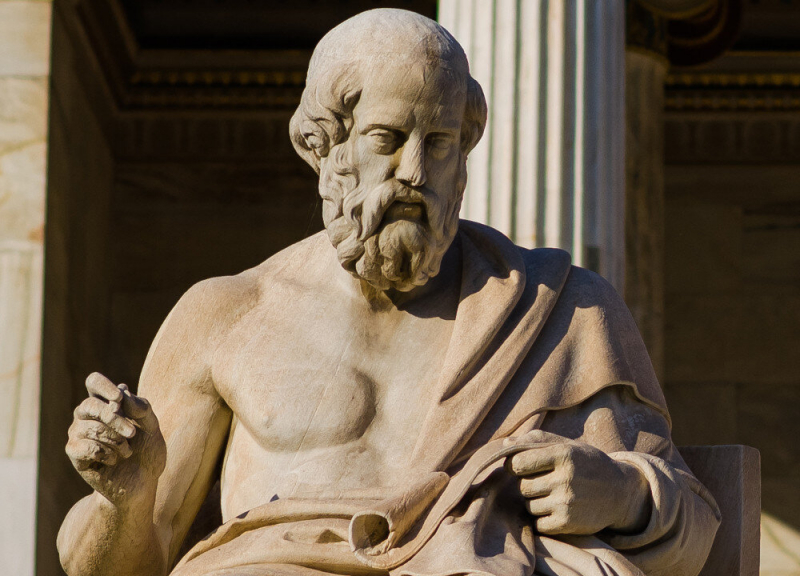
www.biography.com Philosophy Vibe -youtube.com -
Plato provides insight into the idea of beauty and love in his book, Symposium. Seven characters in this work of philosophical fiction deliver lectures extolling the virtues of Eros, the deity of desire and love. According to legend, here is where the first seeds of what we now understand as Platonic love were planted. This is a passionate, otherworldly bond that does not involve sexual activity.
Through these characters, Plato examines a range of perspectives. Socrates, the main character, talks about how men should first fall in love with a particularly attractive person, then move on to loving a particular example of beauty in general, and finally loving moral rather than physical beauty. A person should be admired for their expertise, as well as for who they are as an individual. The following phase should be to love intelligence, and then one should be able to love and appreciate heavenly beauty.
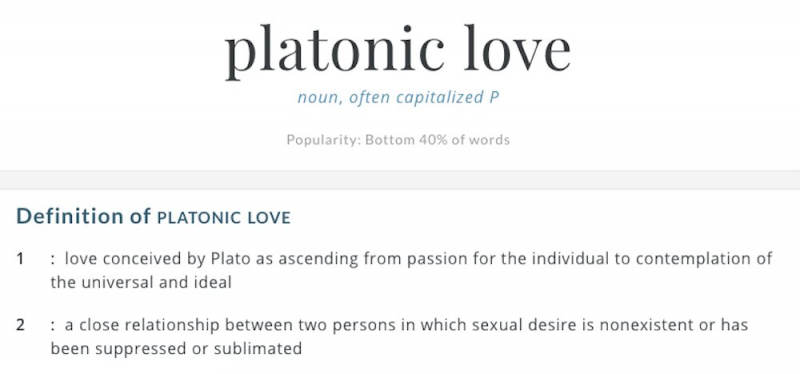
Platonic love - www.entitymag.com PhilosophyToons - youtube.com -
Despite not being a mathematician himself, Plato was one of the most significant supporters of the field in ancient Greece. Plato, who was greatly influenced by Pythagoras, founded his school in 387 BCE and placed a strong emphasis on the topic as a means of learning more about reality. Plato made the case that mastering math broadens our thinking and directs it in the direction of reality. It forces us to think about equality, opposites, unity, and plurality in terms of numbers, which inspires us to leave this fleeting world and unite with absolute oneness.
Additionally, Plato vehemently advocated for teaching mathematics to the soldiers, who served as the city's protectors because of its useful uses. A general who understands geometry is aware of his or her location in a conflict or any other tactical military maneuver and may use it to their advantage. Besides, he was certain that geometry was the key to comprehending the cosmos.
The Greek intelligentsia was greatly influenced by Plato in their decision to see science as a theory. Like Pythagoras, his Academy encompassed the study of geometry, astronomy, and music in its first ten years of instruction. All numbers are one and have an unlimited number of variations, including the number one. In terms of the physical and intangible forces, he said that mathematics and philosophy are related since both subjects work best when reason and logic are used. The sign over the Academy entrance read “Let anyone unaware of geometry enter here”. As the "producer of mathematicians," Plato's Academy produced some of the most notable mathematicians in antiquity, including Eudoxus, Theaetetus, and Archytas.
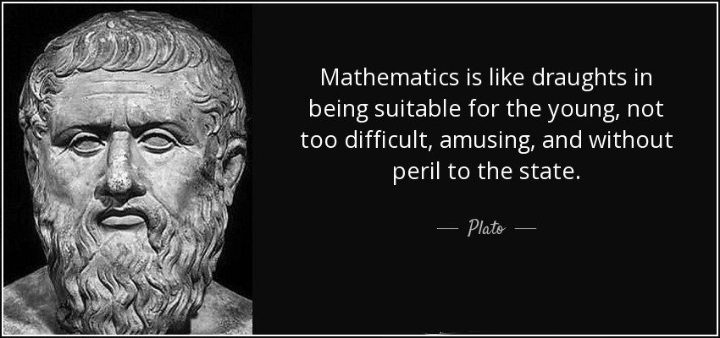
www.azquotes.com IronButterfly44 - youtube.com -
The philosopher returns to the topic of society in Laws, his final opus. Unlike the Republic, Laws focused more on designing a workable, though flawed, structure of governance than they did on establishing the ideal state.
Laws' characters fret over the experimental nuances of statecraft and create norms to address the plethora of potential outcomes that may result from "the current actuality" of human issues. Laws, a massive and complex treatise that spans 345 Stephanus pages, was still unfinished when Plato passed away. Diogenes Laertius, a biographer, describes how it was started but left unfinished and written on wax tablets.
Timaeus by Plato is renowned for describing how the demiurge created the cosmos. In contrast to the creation myths of the Middle Ages, Plato's demiurge produces the cosmos from timeless forms-like fundamental matter rather than from nothing. Plato claims that the four elements of fire, air, water, and earth come together to form the "body of the cosmos." The Timaeus is Plato's book that most directly addresses the subjects we consider to be fundamental sciences, such as physics, chemistry, and biology.
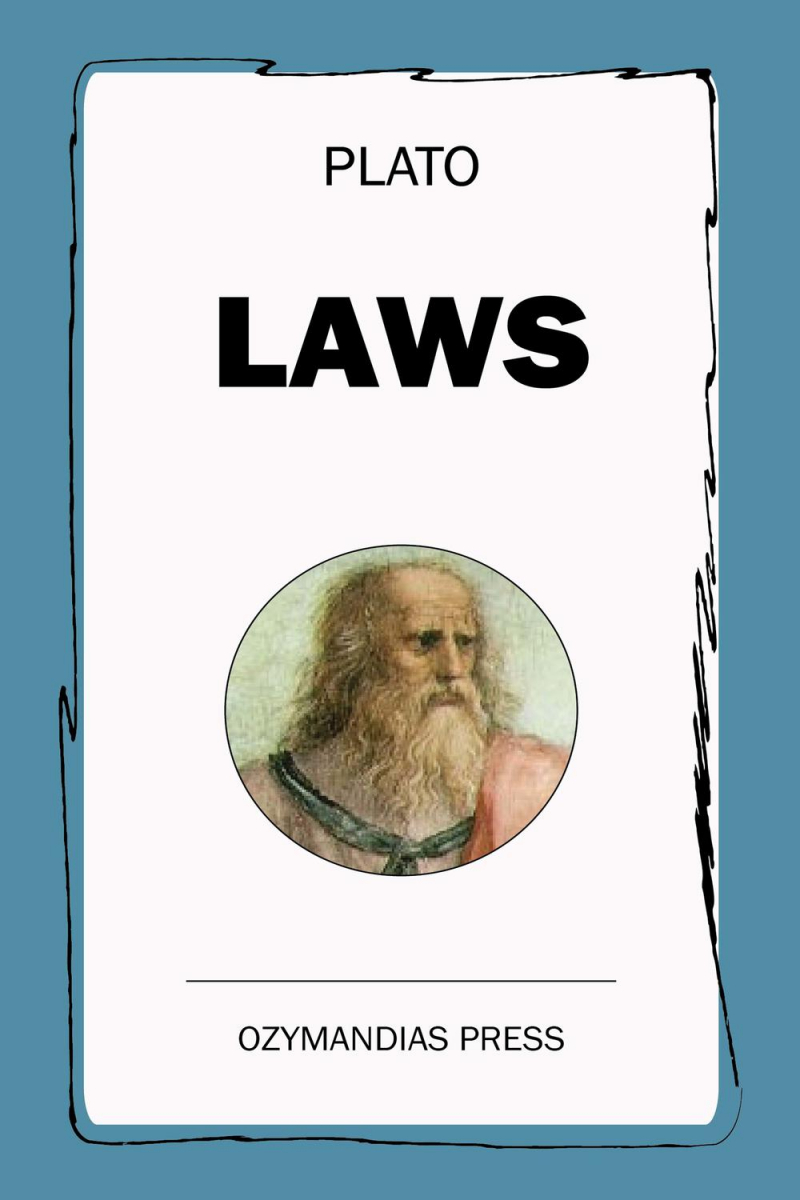
Laws - www.amazon.com 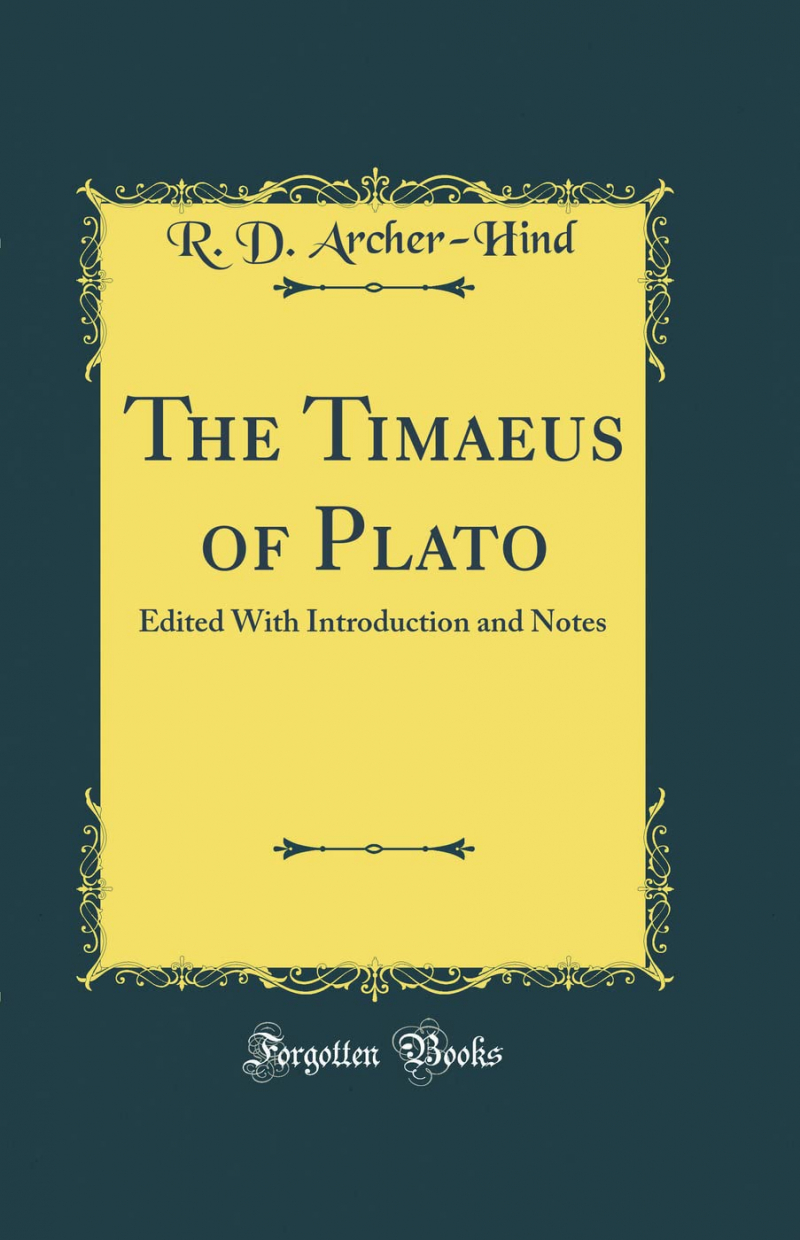
Timaeus - www.amazon.com -
The wise man holds on to the truth and does not alter with the times. Plato thought that Reality, which was difficult for the average person to understand, was in the center of the illusive material world. He suggested in volumes VI and VII that only philosophers should be in power because only they could extract the true knowledge elixir from the convoluted world of ordinary views and beliefs. He claimed that the latter was derived from the Greek term Doxa and that the former was epistemic.
Plato was a fierce opponent of democracy and wanted intellectuals to put politics above small-scale conflicts between the general populace's particular interests. In his view, the administration of justice was aided by the strong twins of epistemology and ethics. He had the same view as his teacher Socrates that the soul is the all-knowing, all-pervading force. In terms of information acquisition, the soul has no boundaries. It is, however, wrapped with material identifiers that block our perspective.
There are types of objective realities, in Plato's view, that is imperceptible to our senses. And those that can be obtained quickly with the aid of these organs aren't flawless actuality. His use of the metaphors of the sun, the dividing line, and the cave to represent this phenomenon is more effective. In conclusion, Plato's bold letter is identified as the forerunner when the history of epistemology is researched. Many academics and thought leaders have developed his idea further in the years that have come after.
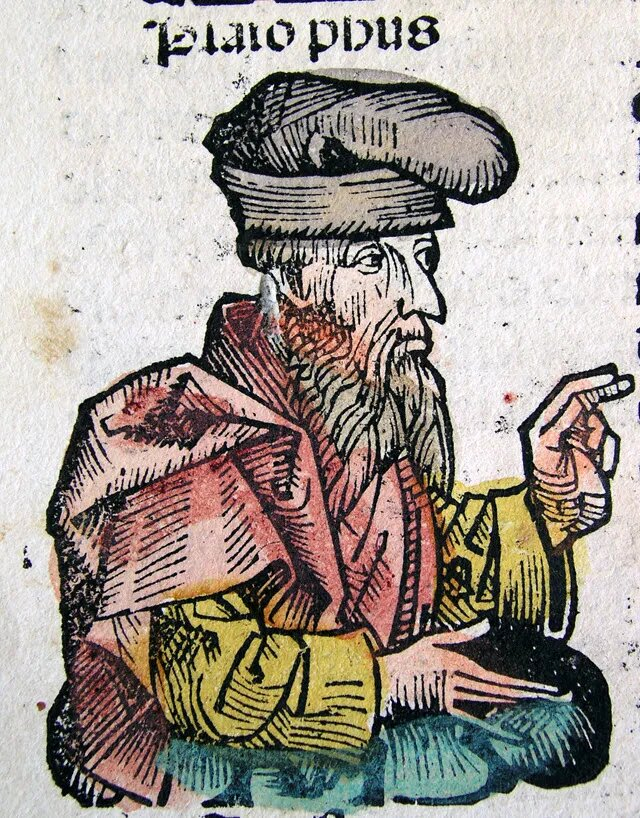
www.researchgate.net Wireless Philosophy - youtube.com -
For Plato, education was of utmost significance since it lays the groundwork for a successful and stable state. He firmly thought that no legislation was necessary for an educated society, but that in an uninformed culture, nothing would be enough. His recommended style and reformations in ancient Greek are echoed in the categorization of schooling levels and ideal age. His original beliefs are reflected in the system of compulsory education for both male and female students.
The goal of Platonic education, as it was explained in Book VII of the Republic, was to enable students to glimpse the light of their souls. He said that it should be the main goal of education: to help individuals discover their true selves by creating the ideal environment. Therefore, there were no step-by-step instructions to be ingrained in the students' minds through Platonic education. It emphasized the soul's simple recall of all the information it had learned in a previous incarnation.
This memory hypothesis is covered in The Meno. As a result, it became the responsibility of the instructor to assist the pupils in accessing this hidden reservoir of information. He argues that we should seek education zealously throughout our lives and not only until a particular age. Our soul is a flexible being even if it is a changing agency. As a result, they are seen differently during various life phases, including childhood, adolescence, youth, and maturity.
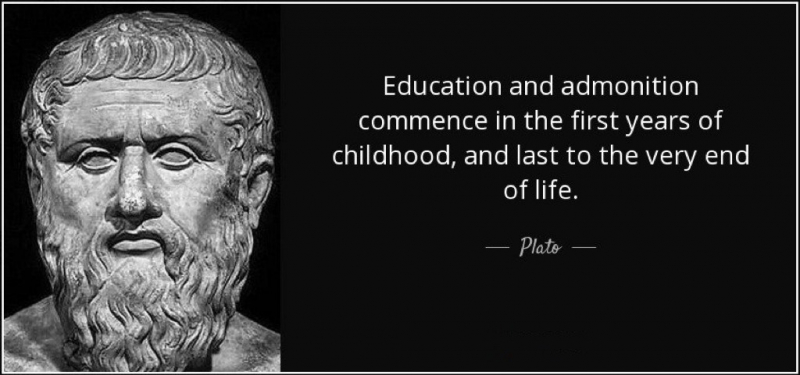
www.azquotes.com ASHISH SHRIVASTAV - youtube.com -
Plato interpreted his theories of forms and theory of existence in several works, most notably the Republic. It addresses both the reality of certain things in the world and how to understand them. He used a metaphorical story one of the most well-known and frequently quoted to highlight these principles. He had made an effort to analyze ideas of justice, idealism, and beauty in his works.
He stated that it was important to consider picturing anything in its ideal or flawless form. That made it possible for us to see the imperfections or holes in the refining of an object and motivated us to fix them. He believed that each given concept or item that was excellent was created in its ideal form by the master or a guide. We can achieve our objectives only by locating the Theory of Forms. Plato believed that philosophy was the tool that might lead us to them, which may seem a little weird.
It is a mental idea, in other words, that results in other things like tributaries. According to the Platonic view, every matter is only a flawed replica of its ideal Form. According to him, the upper, invisible vortex controls everything that can be seen with naked sight. He claimed that understanding the eternal and constant is possible via reasoning, a philosophical study, and logic (logos). We can only see it temporarily and imperfectly through our senses of sight, smell, and appearance.
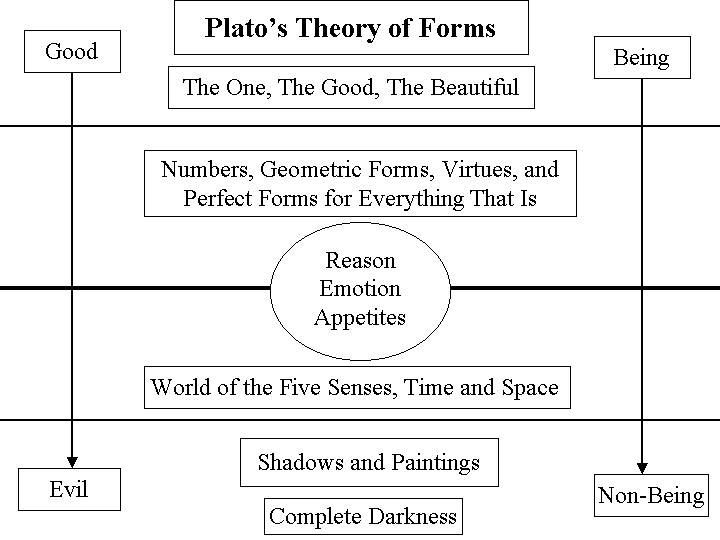
Plato's theory of forms - prezi.com Jest Education - youtube.com -
The Republic is regarded as a philosophical encyclopedia that covers all facets of human life, including politics, education, the ideal man and society, morality, and ethics. State, justice, rights, and liberty are the four main pillars of political theory or political philosophy, and they were all written by Plato in his book.
The polis, or city-states, of ancient Greece were always at odds with one another. The grouping of both the ruler and the subject, as well as the larger phenomena of legitimacy, rights, and obligations, were all thoroughly examined by Plato. He substituted the arete with the presumptive method of experiencing life, which was via splendor and chivalry (moral virtue). Additionally, he argued that the democratic government of the time in Athens had a mob mentality.
Plato disregarded democracy as a chaotic display of competing ideas, beliefs, and interests that never managed to find common ground. In the end, demagoguery succeeded in influencing them all. He offered a fresh approach to citizen education and how to set up political institutions for the good of the state in The Republic.
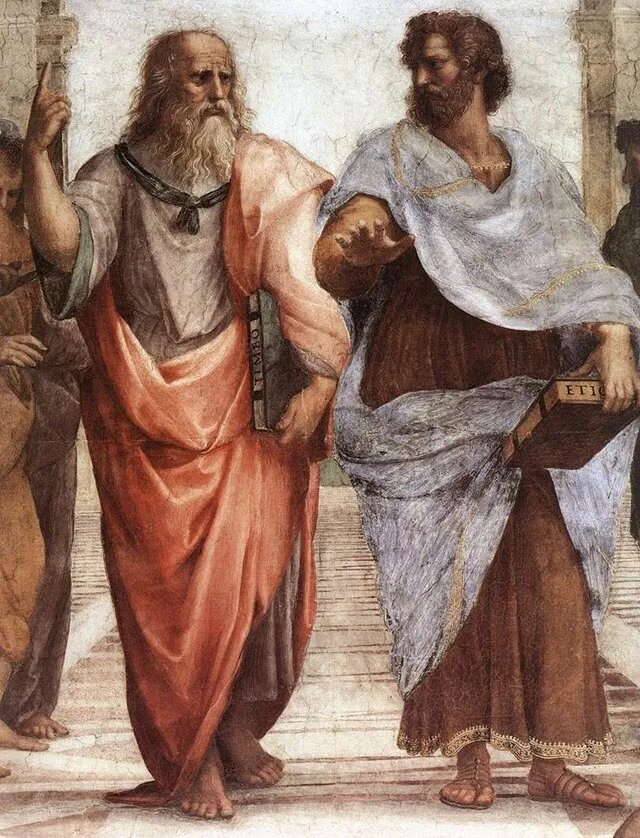
www.biography.com Inventing Civilization - youtube.com














